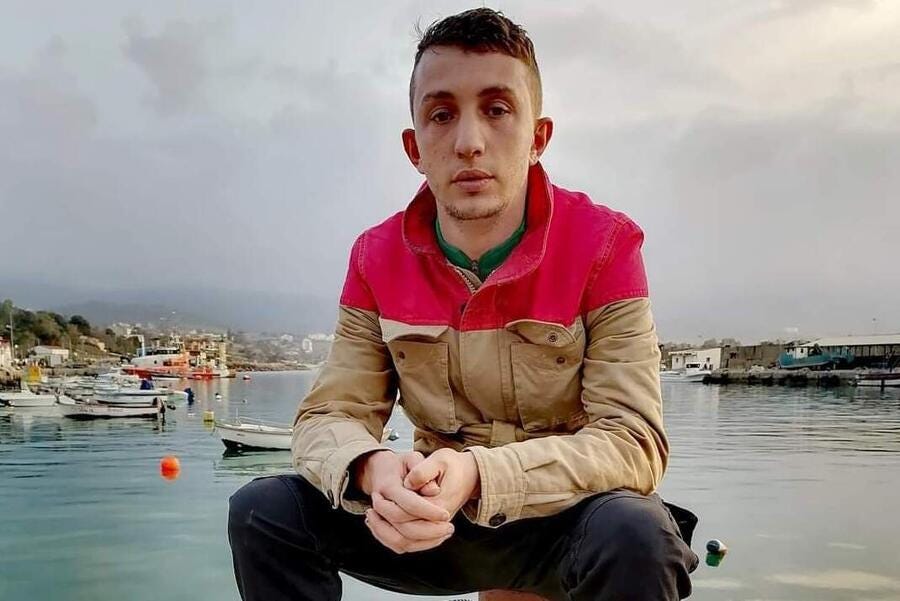Dissident Spotlight: Mohamed Tadjadit
Mohamed Tadjadit is a poet who was sentenced to five years in prison for his outspoken opposition to Algeria's oppressive regime.

In February 2019, Algeria’s dictator secured his fifth presidential term, setting off a wave of protests that led to his resignation in December of that year but didn’t end with him.
One of these protesters was Mohamed Tadjadit, a poet in his 20s who was first arrested in August 2020, well into the ongoing democracy protests. Tadjadit became known as the “poet of Hirak” for poems like this one excepted from Adrian Grima’s blog:
“And the mafia State will fall / The people are proud and will never be broken / They only want to clean their nation.”
Sharp words weren’t Tadjadit’s only protest method. He went on a hunger strike with several other detainees in 2023. After a series of arrests and detentions since 2021, Algerian officials arrested Tadjadit in January 2025. Days later, he was sentenced to five years in prison for:
Inciting hatred on social media
Harming the national interest
Insulting a constituted authority
Algeria may have changed presidents, but its government’s oppressive practices have remained.
Resistance Only Gets Harder
One of the striking details of Tadjadit’s story is how dramatically Algeria’s government escalated its penalties against him. He went from detentions measured in months to years.
This is a common pattern in authoritarian countries. As authoritarian leaders feel more threatened, they crack down harder on dissent. Alexei Navalny had a similar experience from short detentions to a labor camp sentence he didn’t survive. It’s much easier to stand up to an authoritarin at the beginning of his reign, well before large organizations bow to his pressure and civic groups are destroyed by it.
Anyone with concerns about authoritarianism in their own countries would do well to remember how much harder resistance can become, whether they’re lawyers at prestigious law firms, university presidents, or ordinary people worried about their government’s health.

